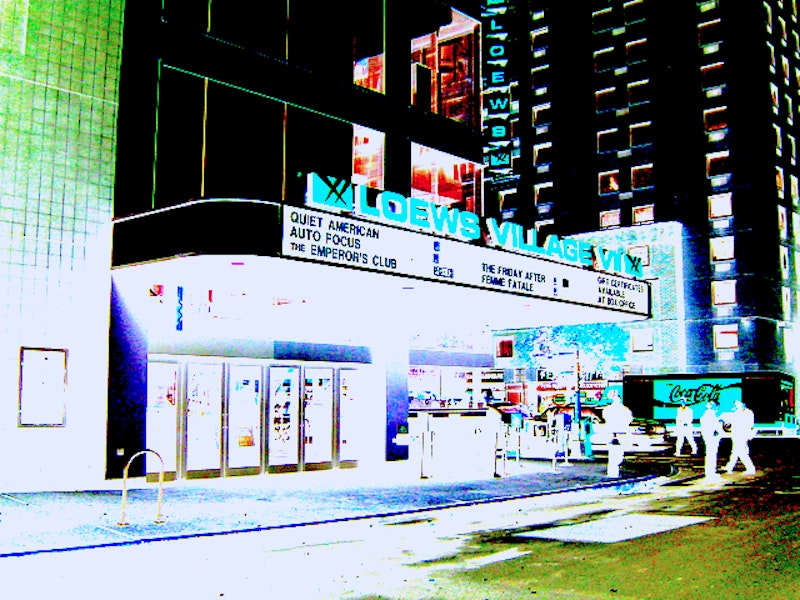Earlier that night—one night in New York City, January 1996—one of Enzo’s wives took in a movie at the Loews Village 7 at 3rd and 11th. It was the new Michael Mann movie, Heat, a three-hour crime epic set in Los Angeles starring Robert De Niro and Al Pacino. There were a number of other notable stars and character actors—Val Kilmer, Jon Voigt, Tom Sizemore, Ted Levine, Tom Noonan, Ashley Judd, Danny Trejo, Henry Rollins—she recognized from all of the American films that her ex-husband had on videotape in the late-1980s. There were new faces, but it was the same world, something from Hollywood, monotone as usual. To Lorena Alta, there was nothing innovative about Heat. There was nothing innovative about her ex-husband’s films, most of which she’d seen only on videotape.
There was nothing else for Enzo when it started: videotapes, videotapes, videotapes—old Hollywood classics, dubs of Japanese films, clandestine work copies of his rivals’ work, and everything new coming out of America. Lorena catalogued his collection, and although she didn’t keep a diary, she remembered all of Enzo’s opinions, unfortunately.
Enzo loved Heathers, Cry Baby, Life is Sweet, and Total Recall; he hated Hairspray, Die Hard, Batman, and the Back to the Future and Indiana Jones franchises. Lorena loathed them all. Born in Sorrento, she spent most of her life on the Left Bank in Paris. At 13, she went to Le Havre and saw Out 1 by Jacques Rivette in its only public screening until 1989, the year she married Enzo. During the 13-hour screening of Out 1, she smoked a joint with her friends behind Bulle Ogier—but that was 1971. In 1989, she couldn’t revisit one of her favorite films because her husband insisted that she accompany him to all of his screenings at the Rotterdam Film Festival. Not quite a retrospective, not quite a premiere, the festival was showing three of Enzo’s recent works to potential distributors and exhibitors.
No one bit, but at the same time, hardly anyone stayed for the entire Out 1 screening. Lorena caught up with her old friend Jonathan Rosenbaum just as he was leaving for the airport; he was one of the few people who cared to watch even one installment of the serial. Enzo liked some of the directors of the French New Wave—Godard, Chabrol, Resnais—but he despised Rivette for the same two reasons most people liked him, and still do: excessive length and technical sloppiness. He didn’t care how much fun Céline and Julie were having, all he could see were the hairs in the gate at the bottom of the frame. Who was this man’s cinematographer? Did he have an assistant? Why were people praising home movies of homely French people and acting like it was revolutionary?
She got into it with Rosenbaum, who defended Rivette in good nature—they were both just happy to see each other. Enzo pulled her away before she could get his new number and address in Chicago. It had been a long time since Paris, 1971.
Enzo didn’t know that Lorena was in New York City, nor that she was planning on visiting him at the Hotel Pennsylvania. She didn’t want anything, and she wasn’t even sure if she wanted to talk to him, but she wanted to see him. She knew it would be the last time.
—Follow Rooster Quibbits on Twitter: @RoosterQuibbits

